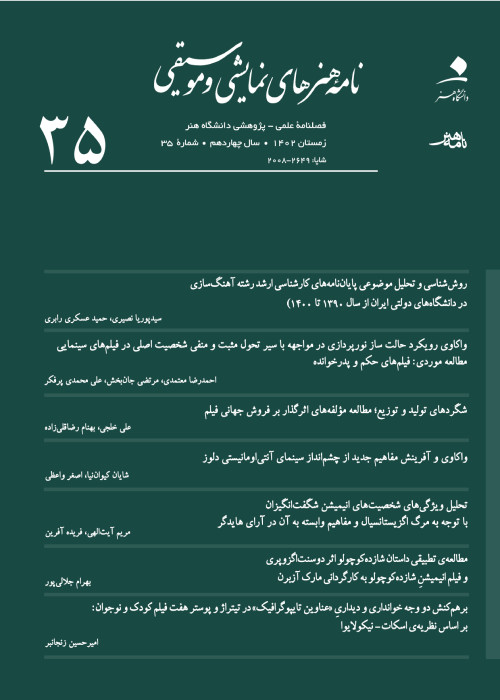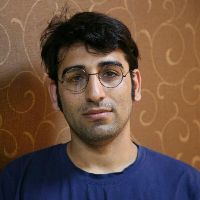Study of the Language Structure of Tom Stoppard's Dogg's Hamlet, Cahoot's Macbeth Based on the Wittgenstein Language Game
Author(s):
Abstract:
Tom Stoppard is a British playwright who has written prolifically for TV¡ radio¡ film and stage. He became a famous figure in dramatic literature with plays such as Arcadia¡ The Coast of Utopia¡ Every Good Boy Deserves Favor¡ Professional Foul¡ The Real Thing¡ and Rosencrantz and Guildenstern Are Dead. In Doggs Hamlet¡ Cahoots Macbeth -two plays by Tom Stoppard¡ written to be performed together -written in 1980¡ Stoppard has incorporated linguistics with dramatic literature. As language-game is one of most important linguistics topics¡ Stoppard has applied it to find a new way for conveying meanings. Language-game is one of the Wittgensteins topics in his book¡ Philosophical Investigations. Ludwig Josef Johann Wittgenstein was an Austrian-British philosopher who worked primarily in logic¡ the philosophy of mathematics¡ the philosophy of mind¡ and the philosophy of language. Language-game is a philosophical concept developed by Ludwig Wittgenstein and Friedrich Waismann¡ referring to simple examples of language use and the actions into which the language is woven. In Philosophical Investigations¡ Wittgenstein has argued that concepts do not need to be clearly defined meaningfully. Accordingly¡ in Doggs Hamlet and Cahoots Macbeth¡ Stoppard used Shakespearian texts in his own plays and then developed Wittgensteins language game theory based on people diary activities. He put his audience to interface new language named Dogg that apparently is English¡ but its meanings are different. In first play¡ audience learns Dogg language based on Wittgensteins theory. Meaning in use is another theory that Stoppard used in second play. In an illustrative passage in Wittgensteins Philosophical Investigations¡ which plays out in the play¡ a builder¡ A¡ is building something using differently shaped building stones. As A calls out slab! block! pillar! or beam¡ the appropriate stones are brought to him by his assistant¡ B. An observer might assume that the words name the objects¡ but Wittgenstein suggests another interpretation: the co-worker already knows what pieces to toss and in what order¡ but the words are rather signals that A is ready for the next piece. Wittgenstein also suggests a scenario in which one worker understands the words to mean the shapes of the wood and the other understands the words as the signification of readiness. In other words¡ the two workers speak different languages without being aware of this fact. In Cahoots Macbeth¡ after entering the Inspector character¡ Players continue the play in Dogg language- that already audience can recognize it. According to language game theory¡ Stoppard has succeeded to show there is no private language and only power can win against power. In this paper¡ it is shown that audience can learn the meanings of words as Meaning in use and it is possible in any other paly. In his play¡ it should be noted that¡ Tom Stoppard is creating series of rules in the field of language and presenting a new language to audience. He makes the audience familiar with the rules of the language game effects.
Keywords:
Language:
Persian
Published:
Journal of dramatic Arts and Music, Volume:7 Issue: 14, 2017
Pages:
5 to 18
magiran.com/p1732532
دانلود و مطالعه متن این مقاله با یکی از روشهای زیر امکان پذیر است:
اشتراک شخصی
با عضویت و پرداخت آنلاین حق اشتراک یکساله به مبلغ 1,390,000ريال میتوانید 70 عنوان مطلب دانلود کنید!
اشتراک سازمانی
به کتابخانه دانشگاه یا محل کار خود پیشنهاد کنید تا اشتراک سازمانی این پایگاه را برای دسترسی نامحدود همه کاربران به متن مطالب تهیه نمایند!
توجه!
- حق عضویت دریافتی صرف حمایت از نشریات عضو و نگهداری، تکمیل و توسعه مگیران میشود.
- پرداخت حق اشتراک و دانلود مقالات اجازه بازنشر آن در سایر رسانههای چاپی و دیجیتال را به کاربر نمیدهد.
In order to view content subscription is required
Personal subscription
Subscribe magiran.com for 70 € euros via PayPal and download 70 articles during a year.
Organization subscription
Please contact us to subscribe your university or library for unlimited access!



